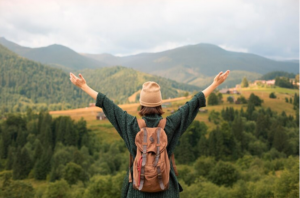In the heart of our vast world lies a tapestry of cultures and landscapes that remain largely untouched by modernity. Among these hidden realms are remote tribes and hidden valleys, where ancient traditions intertwine with pristine natural beauty. Exploring these uncharted territories offers a journey not just through geography, but through time itself, revealing humanity in its rawest and most authentic form.
Venturing into these remote tribes, one encounters a tapestry of traditions that have persevered through centuries. Each tribe possesses its own unique customs, rituals, and belief systems, shaped by the land they inhabit and the challenges they have faced. From the highlands of Papua New Guinea, where tribes like the Huli Wigmen maintain elaborate initiation rites and ceremonial dances, to the Amazon rainforest, where the Yanomami people live in harmony with the dense jungle, these communities exemplify resilience and cultural richness.
The landscapes that cradle these tribes are equally awe-inspiring. Hidden valleys, shielded by towering mountain ranges or dense forests, offer sanctuaries of biodiversity and natural wonder. In places like the Upper Mustang region of Nepal, a once-forbidden kingdom nestled amidst the Himalayas, ancient monasteries cling to cliffsides while barren deserts contrast with snow-capped peaks. Here, the landscape itself tells a story of isolation and adaptation, where communities have thrived amidst harsh conditions, forging a deep connection with their surroundings.
Exploration of these remote areas often requires a spirit of adventure and a willingness to embrace the unknown. Whether trekking through the jungles of Papua New Guinea, navigating the rugged terrain of the Andes, or crossing the vast savannas of Africa, each journey unveils unexpected challenges and moments of profound discovery. It is in these moments that travelers come face-to-face with the resilience of the human spirit and the richness of cultural diversity.
The encounter between outsiders and these remote tribes is often marked by mutual curiosity and respect. For the tribes, visitors represent a link to the outside world—a world of technology, medicine, and ideas that can both benefit and threaten their way of life. Conversely, for travelers, the experience offers a glimpse into a way of existence that challenges preconceived notions and expands perspectives. The exchange of knowledge and understanding that occurs in these interactions fosters a deeper appreciation for the diversity of human experience.
However, the allure of exploring uncharted territories also raises ethical considerations. The impact of tourism, even when well-intentioned, can disrupt delicate ecosystems and traditional lifestyles. Responsible travel practices, such as respecting local customs, minimizing environmental footprint, and supporting community-led initiatives, are crucial in preserving the integrity of these remote areas for future generations.
Ultimately, the journey through remote tribes and hidden valleys is more than just a physical expedition—it is a voyage of discovery into the essence of humanity itself. It is a reminder that despite our differences in language, belief, and lifestyle, we are all interconnected members of a global community. By preserving and celebrating the diversity of cultures and landscapes that enrich our world, we not only honor the past but also cultivate a more compassionate and sustainable future.
In conclusion, exploring uncharted territories reveals not only the vastness of our planet but also the depth of our shared human experience. From the secluded tribes of the Amazon to the hidden valleys of the Himalayas, each encounter offers a glimpse into a world shaped by ancient traditions and natural beauty. It is a journey that challenges perceptions, fosters cultural exchange, and inspires a profound appreciation for the diversity that defines us as a species. As we navigate these remote landscapes, we discover not only the richness of our planet but also the resilience of the human spirit, reminding us of the profound connections that unite us all.























+ There are no comments
Add yours